Can a Chiropractor Help with TMJ (Jaw) Disorder and Lockjaw?
Does it hurt when you chew, open wide to yawn or use your jaws? Do you have pain or soreness in front of the ear, in the muscle, cheek, the teeth or the temples? Do your jaws make loud noises enough to bother you or others? Do you find it difficult to open your mouth wide? Does your jaw ever get stuck/ locked as you open it? If you answered "yes" to any of these questions, you may have a temperomandibular joint disorder, or TMD. TMD is not an uncommon ailment and can be an extremely debilitating and painful. Many people do not know exactly what to do when they experience jaw pain.
Every time you open your mouth, yawn, chew, swallow, or speak, the TMJ's (we have two, one on either side) move. And if the pair's complex movement do not synch with one another, the classic  symptoms of TMJ arrive on scene - such as jaw pain, popping, teeth grinding at night, and/or inability to fully open or close the mouth, not to mention headaches, neck pain, and ringing in the ears.
symptoms of TMJ arrive on scene - such as jaw pain, popping, teeth grinding at night, and/or inability to fully open or close the mouth, not to mention headaches, neck pain, and ringing in the ears.
Basically, as one of the joints moves as normal, the other one gets hung up. With the normal moving TMJ going through its motion of hinging and sliding forward, pressure in the dysfunctional joint builds until the leverage from the normal moving side literally pries it free causing the classic "pop."
Many things can act upon the TMJ and cause it to fall in a state of dysfunction. Everything from dental bite problems to poor posture, whiplash to spinal misalignments. Fortunately, the TMJ is largely able to adapt quite well and is constantly doing so. Sometimes however, the demands on the TMJ become too great, and its ability to adapt falls short - allowing  symptoms to get the upper hand.
symptoms to get the upper hand.
Because this joint is so adaptive, the goal of treatment -whatever it may be - is not necessarily to "fix" the problem, but rather to enhance the TMJ's ability to adapt.
Chiropractors look to restore the imbalances of the spine and muscles that directly and indirectly influence the health and function of the TMJ. Some situations require team treatment with a dentist - others do not. When it comes to TMJ symptoms, chiropractic is effective and non-invasive and often brings about, not only great relief, but the restoration the patient needs.
TMD is a group of conditions, often painful, that affect the jaw joint. Signs may include:
- Radiating pain in the face, neck, or shoulders
- Limited movement or locking of the jaw
- Painful clicking or grating when opening or closing the mouth
- A significant change in the way the upper and lower teeth fit together
- Headaches, earaches, dizziness, hearing problems and difficulty swallowing
For most people, pain or discomfort in the jaw muscles or joints is temporary. However, some people can develop chronic symptoms. Your Doctor of Chiropractic can help you establish whether your pain is due to TMD and can provide conservative treatment if needed.
What causes TMD?
TMJ disorder falls into three categories:
- Myofascial pain - discomfort or pain in the muscles of the jaw, neck, and shoulders
- A dislocated jaw or displaced disc
- Degenerative joint disease - rheumatoid arthritis or osteoarthritis in the joint
Severe injury to the jaw is a leading cause of TMJ disorder. For example, anything from a hit in the jaw during a sporting activity to overuse syndromes, such as chewing gum excessively, or chewing on one side of the mouth too frequently, may cause TMD. TMD could also be dangerous if you have an infection or impacted tooth causing misalignment of your jaw. However, there are many cases which are caused by nothing more than stress or stress-induced behavior.
Both physical and emotional stress can lead to TMJ disorder, as well. The once-common practice of sitting in a dentist's chair for several hours with the mouth wide open may have contributed to TMD in the past. Now, most dentists are aware that this is harmful to the jaw. In addition to taking breaks while they do dental work, today's dentists also screen patients for any weakness in the jaw structure that would make injury likely.
While emotional stress itself is not usually a cause of TMD, the way stress shows up in the body can be. When people are under psychological stress, they may clench their teeth during waking hours or while sleeping, which can be a major factor in their TMJ disorder.
Some conditions once accepted as a cause of TMD have been dismissed - moderate gum chewing, chewing red meat such as steak, non-painful jaw clicking, orthodontic treatment (when it does not involve prolonged opening of the mouth), and upper and lower jaws that have never fit together well. Popular theory now holds that while these may be triggers, they are not causes.
Women experience TMD four times as often as men. Several factors may contribute to this higher ratio, including sitting too long at the workplace, general posture and higher heels.
Temporomandibular Joint Disorder Diagnosis and Treatment
To help diagnose or rule out TMJ disorder, your chiropractor may ask you to put three fingers in your mouth and bite down on them. You may also be asked to open and close your mouth and chew repeatedly while your chiropractor monitors the dimensions of the jaw joint and the balance of the muscles. If you have no problem doing these things then it is probably not TMD. Sometimes an x-ray or MRI is needed to confirm diagnosis.
If you have TMD, Dr. Pisarek may recommend chiropractic manipulation, massage, applying heat/ice and special exercises. If Dr. Pisarek feels you need special appliances, he or she will refer you to a dentist or orthodontist for co-management. In addition to treatment, Dr. Pisarek can teach you how to:
- Apply heat and ice to lessen the pain
- Avoid harmful joint movements. (chomping on an apple or hard candy, etc).
- Perform TMD-specific exercises.
What Will My Chiropractor Do?
Many people find it strange to visit a chiropractor for jaw pain, but the fact is that chiropractors work on all the joints of the body, not just the ones from the neck down. The jaw is still an intricate connection between bone and muscle and a chiropractor specializes in treating these kinds of problems.
Rest assured that Dr. Pisarek will first perform an examination to insure that your problem does not require surgery or medication. If it does not, he will offer you a plan involving non-invasive treatments which require no medication.
Chiropractic treatments may consist of a combination of: low-level laser therapy; specific stretches and exercises; painless joint manipulation and mobilizing techniques; digital trigger (pressure) point massage; physiotherapy (electrotherapy; ultrasound); Ice and/or heat applications; and lifestyle modification.
Click here for link 'TMJ Symptoms: Lockjaw'
In some cases, TMD may not respond to a conservative approach (for example, when there is a disc or arthritic problem in the joint itself) and may require referral for dental treatment or surgery. This should be considered as a last resort as surgery may be irreversible.
Call Dr. Pisarek now at (416) 633-3000 to schedule an appointment to make your
TMJ (Jaw) suffering "a thing of the past"!

